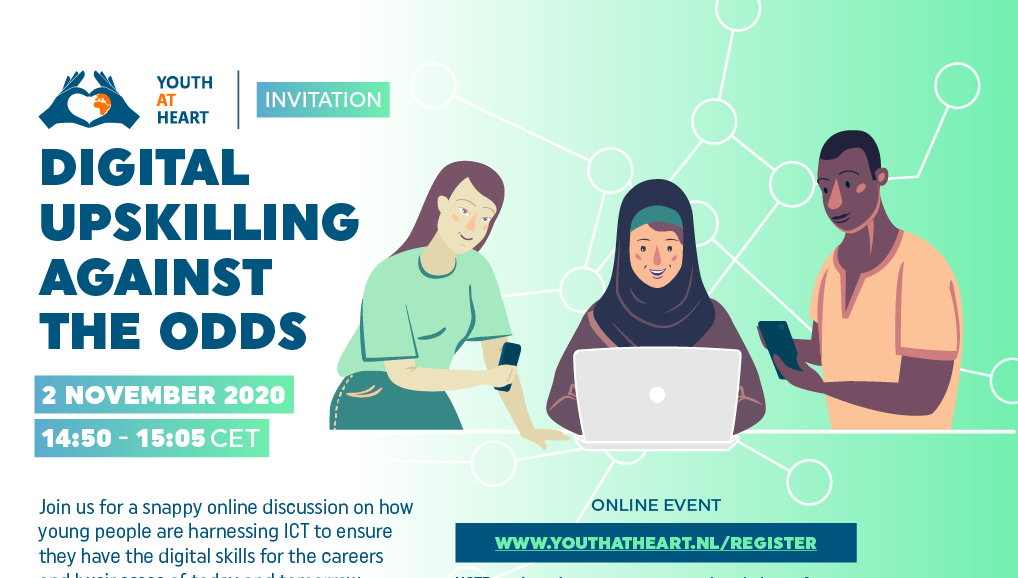



The digitalization of society and the economy has accelerated during the corona virus crisis. Employees are working from home, and education has gone online, including in Africa. But this trend does not include everyone. Only a quarter of the population of Sub-Saharan Africa has access to the internet, while half the global population is now online. This development has reduced the prospects of work and income for millions of young Africans. The main obstacles are a lack of electricity and connectivity.
This is about to change, however. Big tech companies like Google and Facebook are ready to close the gap, with plans not only to provide services as online platforms, but also to build internet infrastructure with embedded services. In this development, it is important to safeguard values such as privacy, data protection and freedom of speech.
That is why the Advisory Council on International Affairs (AIV) recently advised the Dutch Ministry of Foreign Affairs that the Netherlands, as a trading country with a digital leading position, uses its expertise to ensure that the African continent can also make the transition to a digital economy in a responsible manner. The AIV report zooms in on how the coming waves of digitalization and automation will impact on employment and job opportunities for young people in Africa, and how Dutch development policy can respond.
In this recent online debate, hosted by RNW Media, we discussed the findings of the AIV report with African youth experts. Each expert addressed a different angle and challenge highlighted by the report: Dacia Munezero (Yaga Burundi) addressed the need for better jobs in Burundi where youth unemployment is a severe problem. Oyindamola Bamgbola-Fadeyi (Love Matters Naija) spoke about the need for greater investment in education and digital skills development in Nigeria. Although young people are often described as “digital natives”, the majority of them lack the necessary digital skills for the job market. In fact, a 2018 study found that large minorities of young Nigerians don’t actually know about the internet. Trésor-Dieudonné Kalonji Bilolo (Habari RDC) discussed online freedoms, censorship; and mis/disinformation. DRC, like other African countries, suffers from government shutdowns of the internet and social media and struggles with online hate speech and disinformation.
Through the debate we again found that especially in the areas of fintech, health, education and food safety, many innovative, creative solutions are already being developed which address African digitalization and youth employment. For example, more than 300 technology hubs are currently located in 42 African countries.
Another, very recent initiative that uses Dutch expertise for the advancement of reliable and responsible digitalization and data gathering in Africa is the establishment of COVID data points, based on the FAIR data principles under the VODAN Africa network. This month, the first African data points in Uganda, Kenya, Nigeria, Tunisia Ethiopia and Zimbabwe have been established and form a structure that warrants further roll-out across Africa. The project is undertaken in collaboration with Leiden University Medical Centre Go Fair Foundation and Philips Foundation. The first seven data points have already been established, bringing the availability of reliable COVID-19 reporting for policymaking in Africa one step closer.
Furthermore, Fintech is an emerging industry that uses technology to improve financial services has grown rapidly in Africa. Thanks to the combination of mobile internet and low-tech offline tools like radio and text messaging. This kind of local innovation has allowed digitalisation to promote inclusive development in Africa.
As these examples show, the Dutch experience in the advancement of promising start-ups and scale-ups, combined with the knowledge about creating conditions for a safe and responsible digital business climate can make a contribution that should not be underestimated. It can accelerate the process towards a robust, inclusive digital economy in Africa. This active involvement also gives the European Union the opportunity to further strengthen its strategic position in Africa and to break through the undesirable monopoly position of the major technology companies in Africa.
The Netherlands already supports a large number of activities in which youth employment and digitalization play a role in one way or another. By seeking to link up with African ownership, developing a sustainable, sectoral approach and prioritizing the promotion of youth employment using digitalization in a European and multilateral context, we can help Africa develop into a high-quality digital trading partner with enormous potential.
Mirjam van Reisen and Linda Broekhuizen,
Members of the Advisory Council on International Affairs, The Netherlands
Next to being FMO's CEO a.i., Linda Broekhuizen is a Member of the Committee on Development Cooperation of the Dutch Advisory Council on International Affairs. Over the past months, she worked on an advisory report issued to the government and parliament.
On November 2nd, during the Youth at Heart Forum of the Dutch Ministry of Foreign Affairs, she will discuss the advice with young experts from Libya and Egypt. The session will highlight how Dutch development approaches can support young people to improve their digital skills for entrepreneurship and employment despite the challenges of living in restrictive settings.
Join us at 15:00 hrs in Studio Purple. Register now: https://www.youthatheart.nl/register